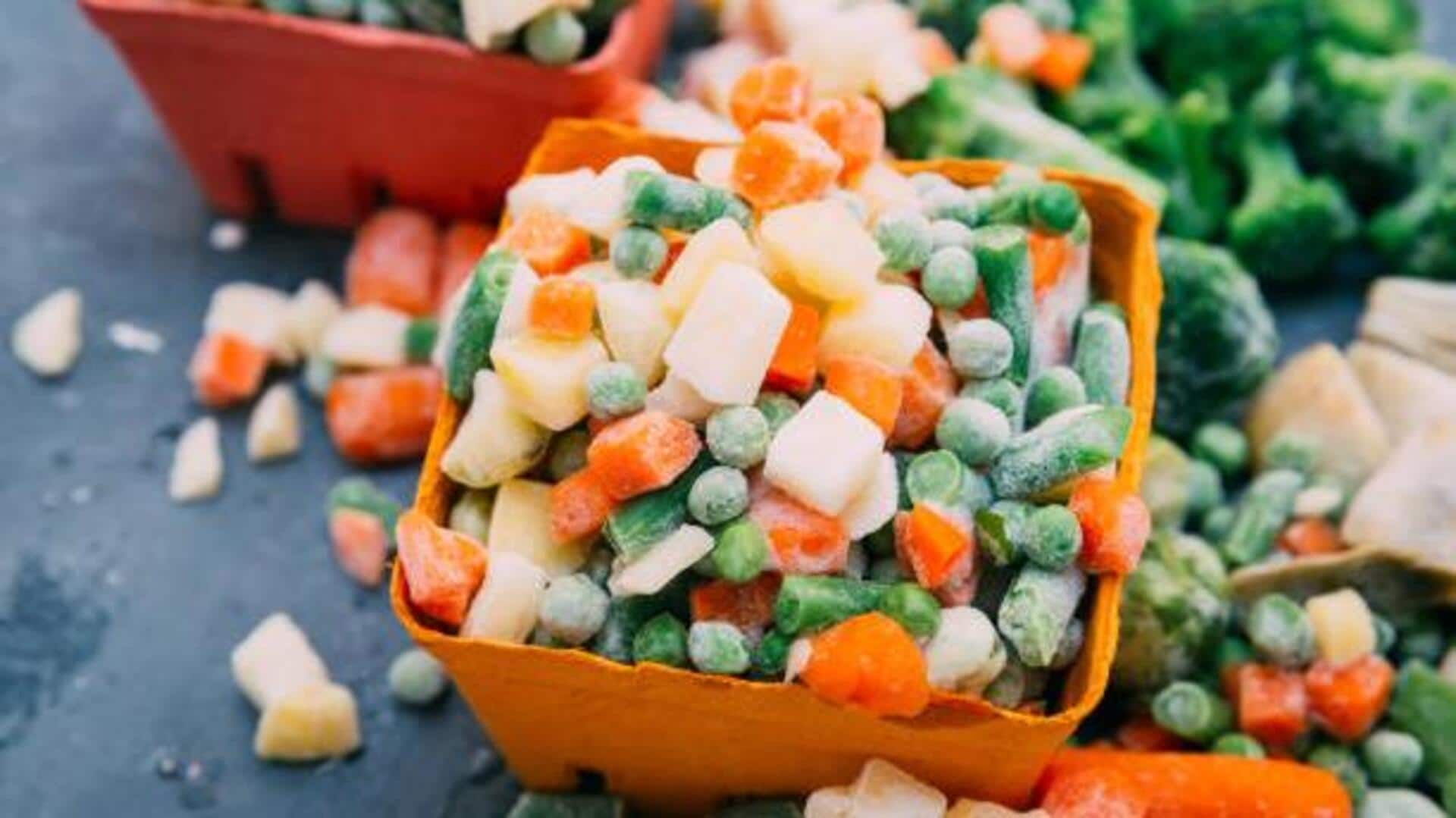
Frozen v/s fresh vegetables: Which is healthier?
What's the story
Frozen vegetables are often touted as the healthier option compared to fresh ones, but is that really true? The idea is that freezing preserves nutrients better than fresh storage methods. However, the truth is a bit more complex. While freezing can retain nutrients, it doesn't always mean they are healthier than fresh vegetables. Let's take a look at how frozen and fresh vegetables stack up against each other.
#1
Nutrient retention in freezing
Freezing vegetables can help retain their nutritional value by halting enzyme activity that causes nutrient degradation. However, the process of blanching before freezing may cause some loss of vitamins, especially water-soluble ones like vitamin C and B vitamins. Studies suggest that frozen vegetables may lose around 10% to 30% of these nutrients during the blanching process. Nonetheless, this loss is often less than what occurs during prolonged storage of fresh produce.
#2
Fresh vs frozen: Vitamin content
Fresh vegetables can lose nutrients over time due to exposure to light, heat, and air. For example, spinach left in the fridge for a week could lose up to 50% of its vitamin C content. In contrast, frozen spinach retains most of its vitamins because it's processed shortly after harvest when it's at its peak nutritional value.
#3
Impact on taste and texture
Freezing alters the texture of some vegetables because ice crystals form in cell walls, which can make them mushy when cooked. This change in texture might not be suitable for all dishes where a crisp texture is desired. Fresh vegetables usually have better taste profiles because they haven't undergone any preservation processes that change their natural flavors.
Tip 1
Cost-effectiveness considerations
Frozen vegetables are usually cheaper than fresh ones, especially when out of season or in demand. They offer an economical way to include more produce in your diet without breaking the bank. Buying frozen also reduces food waste since you can use only what you need at a time without worrying about spoilage, as with fresh produce that may go bad quickly if not consumed promptly.